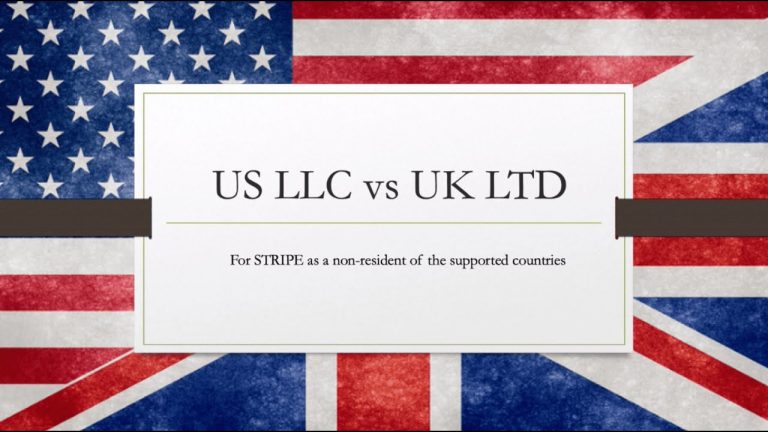LLC vs INC: Which Should You Choose for Your Business?
Starting a new business is exhilarating, but choosing the right structure can feel daunting. With options like LLCs and corporations, it’s essential to understand each one’s advantages and drawbacks to decide which best suits your business needs. In this guide, we’ll break down the differences between LLCs (Limited Liability Companies) and incorporations, helping you determine the best fit for your vision and goals.

What is an LLC?
A Limited Liability Company, or LLC, is a business structure that combines simplicity with liability protection. Unlike a sole proprietorship, where personal assets may be at risk, an LLC offers a protective shield for its owners, ensuring that personal assets remain separate from the business’s obligations. This structure is especially popular among small to medium-sized businesses due to its flexibility.
Key Features of an LLC:
- Limited liability protection: LLC owners aren’t personally liable for business debts.
- Pass-through taxation: Profits are reported on the individual tax returns of the owners, avoiding double taxation.
- Flexible management: LLCs require fewer formalities, making them easier to manage than corporations.

What is an Inc?
An incorporation, commonly known as a corporation, is a separate legal entity distinct from its owners (shareholders). Corporations are ideal for businesses aiming to grow, raise capital, or establish a recognized brand.
Key Features of a Corporation:
- Strong liability protection: Corporations provide a more robust shield for personal assets.
- Ability to raise capital: Corporations can issue stocks, which is attractive to investors.
- Structured operations: Corporations adhere to formalities like board meetings and record-keeping.

Comparing Key Differences Between LLC and Inc
Liability Protection
Both LLCs and corporations offer liability protection, yet they serve it in distinct ways. In an LLC, your personal assets are typically safeguarded from business debts. Corporations, however, take liability protection further, shielding stakeholders through structured ownership.
Tax Implications
Taxation plays a significant role in choosing between an LLC and a corporation. LLCs enjoy pass-through taxation, meaning business income is only taxed once at the individual level. This is ideal for small business owners looking to simplify their tax reporting. Corporations, on the other hand, experience double taxation—once at the corporate level and again on dividends distributed to shareholders. However, electing S-corp status can alleviate double taxation for qualifying corporations.
Management Flexibility
LLCs stand out for their flexibility in management. With fewer regulatory requirements, LLCs can operate with informal arrangements. Corporations, conversely, follow a stricter structure, requiring a board of directors and regular meetings, which can be beneficial for businesses with multiple stakeholders.
Capital Raising and Investor Appeal
When it comes to raising capital, corporations have a distinct advantage. By issuing shares of stock, corporations can attract investors more readily than LLCs, which are generally limited to personal funding or bank loans. If your goal is to expand through external funding, an incorporation may be your best option.

Pros and Cons of LLCs and Corporations
Pros of an LLC
- Ease of Formation: Setting up an LLC is generally straightforward and less costly.
- Simplified Taxes: Pass-through taxation makes tax season easier to handle.
- Flexible Management: LLCs don’t require a formal board, making daily operations simpler.
Cons of an LLC
- Limited Life Span: Some states mandate that LLCs dissolve if an owner leaves or dies.
- Investment Limitations: The inability to issue stock can make it challenging to attract investors.
- Varied State Regulations: LLC rules can vary significantly from state to state, impacting operations.
Pros of a Corporation
- Enhanced Credibility: Corporations often carry more credibility with clients and partners.
- Access to Capital: Corporations can raise capital by issuing shares, making growth easier.
- Stronger Liability Shield: Corporations provide a more substantial layer of protection against lawsuits.
Cons of a Corporation
- Double Taxation: C-corporations face the challenge of double taxation.
- Higher Administrative Costs: Corporations require more record-keeping and legal compliance.
- Complex Management Structure: The need for a board and shareholder meetings can complicate operations.

Factors to Consider When Deciding Between LLC and Corporation (LLC vs Inc)
Your Business Goals
Ask yourself: What do I envision for my business in the coming years? If you plan to keep the business small and want flexibility, an LLC might suit you best. However, if you have growth ambitions and hope to attract investors, an incorporation is worth considering.
Financial Aspects
An LLC is usually more affordable to set up and maintain, making it ideal for businesses in their early stages. On the other hand, while corporations may have higher initial costs, the ability to raise funds through stocks can balance those expenses over time.
Control and Ownership
Are you comfortable sharing control with a board of directors, or do you prefer retaining hands-on authority? In a corporation, control is distributed among shareholders and directors, while an LLC allows for individual or small-group ownership, ensuring you maintain a direct role in decisions.
Tax Flexibility
Consider your tax preferences. While LLCs offer pass-through taxation, some corporations can file as S-corporations to bypass double taxation. Consulting a tax professional is advised to help navigate these complex options and determine what’s best for your circumstances.
Summary Table: LLC vs Inc
| Feature | LLC | INC |
|---|---|---|
| Liability Protection | Protects personal assets | Robust shielding |
| Tax Structure | Pass-through | Double taxation, S-corp option |
| Capital Raising | Limited | High (can issue stock) |
| Management | Flexible | Formal (board meetings required) |
| Setup Cost | Lower | Higher |
Frequently Asked Questions (FAQ)
What’s the primary difference between an LLC vs INC?
An LLC is more flexible and simpler to manage, while a corporation is structured and ideal for businesses seeking to expand and raise capital.
Which structure is better for a small business?
An LLC is typically better suited for small businesses due to its ease of setup and flexibility in management.
Can I switch from an LLC to a corporation later?
Yes, many businesses transition from an LLC to a corporation as they grow. However, the process can involve additional costs and legal steps.
Conclusion
Deciding between an LLC vs Inc is pivotal to setting your business up for success. Think about your future goals, financial considerations, and the level of flexibility you desire. The right choice will protect your assets and enhance your ability to grow. If you’re still uncertain, consulting a legal or tax professional can help clarify which structure best supports your vision.
Are you ready to take your first step toward building a successful business? Start by evaluating your business needs and exploring the options that will pave the way for growth.







